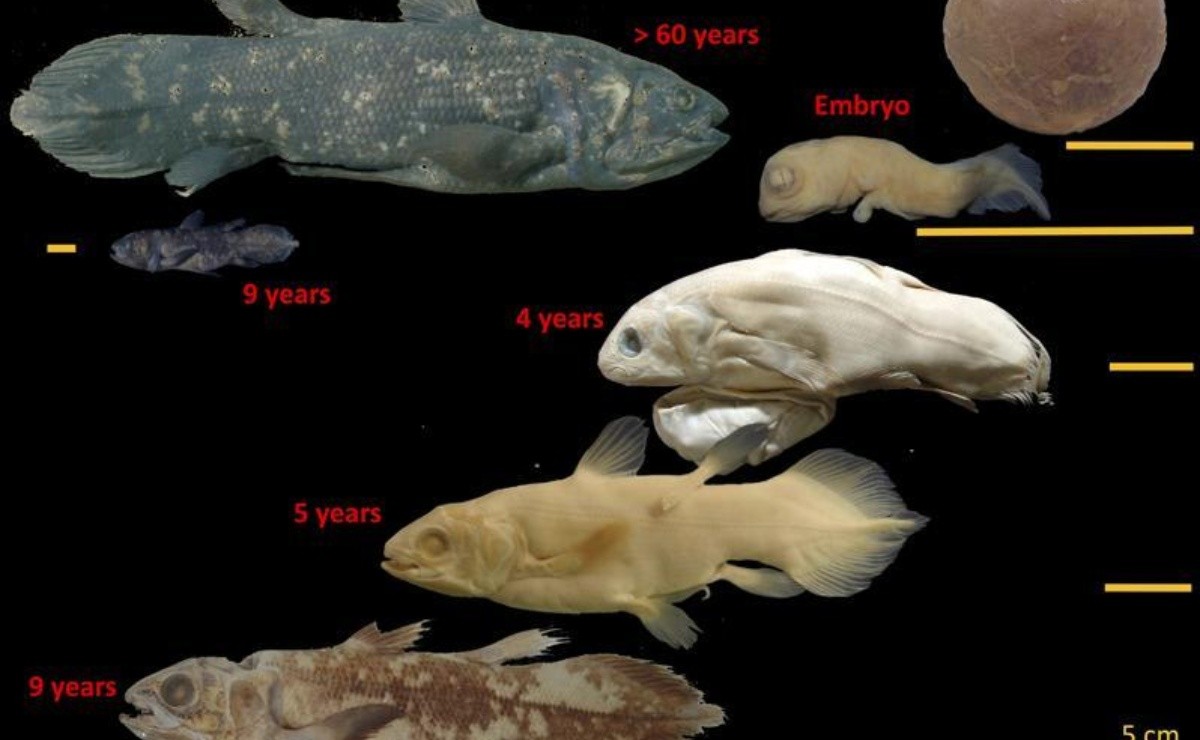
Females do not reach sexual maturity until after 50 years and males are sexually mature between 40 and 69 years.
a rare giant fish whose origins date back to the age of the dinosaurs — can live up to 100 years, a study released Thursday revealed. Those slow fish, the size of a person, are found living fossils and have nocturnal habits.
Females do not reach sexual maturity until after 50 years and males are sexually mature between 40 and 69 years. And, perhaps strangest, scientists think that pregnancy in ovoviviparous fish lasts five years.
Coelacanths, which have inhabited the seas for some 400 million years, were considered extinct until a living specimen was discovered in 1938 off South Africa. Scientists long thought that coelacanths lived for about 20 years. But, applying a standard technique for determining the age of commercial fish, French scientists calculated that they actually live for about a century, according to a study published Thursday in the journal Current Biology.
The danger of extinction of coelacanths is so high that scientists only study specimens and captured and dead.
In the past, scientists calculated the ages of fish by counting the thick lines on a specific scale. But French scientists discovered that that system left out fine lines that can only be seen using polarized light, a technique that is used to determine the age of commercial fish.
Study co-author Bruno Ernande, a marine evolutionary ecologist at the leading institute for marine studies in France, said that polarized light will see five thinner lines for every thick line. The scientists concluded that the thin lines best matched the coelacanth’s one year old, indicating that the oldest specimen was 84 years old.
Using that technique, the scientists studied two embryos and calculated that the oldest fish was five years old and the youngest nine years old. Therefore, Ernande said, they determined that pregnancy lasts at least five years in coelacanths.
Such a long gestation is "very rare" for fish or any animal, said Harold Walker of the Scripps Institution of Oceanography, who was not involved in the study.
Although coelacanths are not genetically related and show large evolutionary differences, they age slowly like sharks and rays, Ernande said. "They could have had similar evolutionary histories because they share similar habitats."